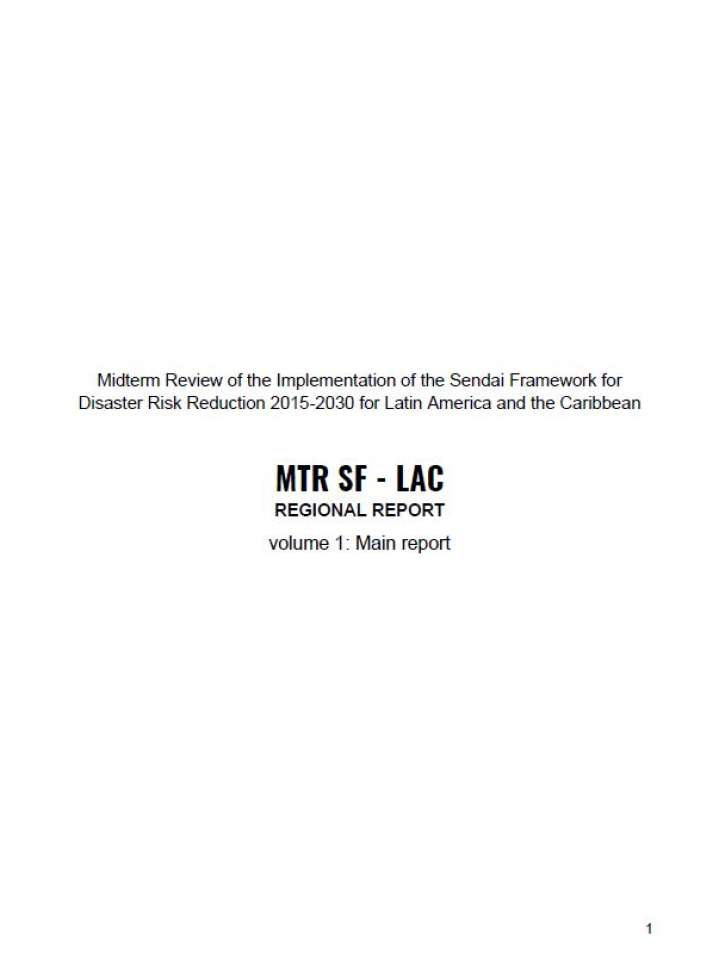Regional Report: Midterm Review of the Implementation of the Sendai Framework for Disaster Risk Reduction 2015-2030 for Latin America and the Caribbean
This publication, together with other submissions from the region including the Caribbean subregional review, various national voluntary reports and thematic studies, serves as input to the global process of midterm review of implementation of the Sendai Framework for Disaster Risk Reduction 2015-2030 from the perspective of Latin America and the Caribbean (LAC). The first part of this report, the retrospective balance, reflects some key aspects of the progress made in the region, identifies obstacles and calls attention to some of the key challenges as per the key aspects of the Sendai Framework. The assessment of the Sendai Framework’s implementation between 2015 and 2022 presents the main findings in terms of both achievements and challenges in each of the four priorities for action of the Sendai Framework, also identifying some key challenges in regard to technical, legal, political, institutional, cultural, financial or structural affairs.
The second part of this report details key structural issues in LAC: poverty, social inequality, human rights violations, gender inequality and barriers to women’s participation, as well as some concerns power and governance. It delves into some specific issues such as forced migration in El Salvador, Guatemala and Nicaragua (collectively known as The Northern Triangle), Haiti and Venezuela. This section also highlights emerging issues and changes in context, such as the pressing need to better articulate sustainable development, disaster risk reduction and climate change, as well as integrating cultural and technological issues into disaster risk management (DRM). The COVID-19 pandemic is understood as a catalyst for social and economic crises and a wakeup call on the profound existing gaps and inequalities among LAC countries and between different areas of countries in and of themselves. The third section looks to the road towards 2030 and beyond, putting forth specific recommendations aiming to broaden and accelerate efforts to achieve the Sendai Framework’s expected outcome and goal in alignment with the Sustainable Development Goals (SDGs) and in line with the previous sections.
